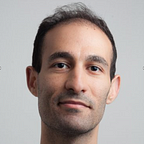Your Brain’s Battle Between Science and Superstition
Superstitions are our brain’s way of making sense of a perplexing world. Over time, as we learn nature’s truths and laws, we leave less space for the guesswork of superstition. In considering the causes of health problems, we replace our beliefs in evil spirits with our knowledge of viruses and organ failures. In putting defendants on trial, we replace our witch dunking with courts and evidence. Generally speaking, the loss of superstitions is a sign of progress. But that doesn’t mean superstitions never have value.
What do we mean when we use the word “superstition”? We are superstitious when we wrongly identify the cause of a particular effect, especially when we invoke a supernatural belief or myth in that estimation. Let’s take the example of a car accident caused by a drunk driver. If we initially assumed that the accident was caused by the car’s faulty brakes, then we would just be wrong. But if we assumed it was caused by a ghost who possessed the driver, we would be superstitiously wrong.
The difference between “wrong” and “superstitious” essentially comes down to how sensible we are in our guesses and judgments. Many car accidents are caused by faulty brakes, and we can find evidence of brake failure after the accident. But we will never find evidence of a ghost, and so far, there hasn’t been a recorded accident that was…
